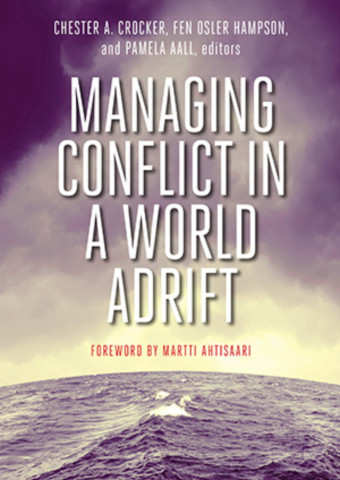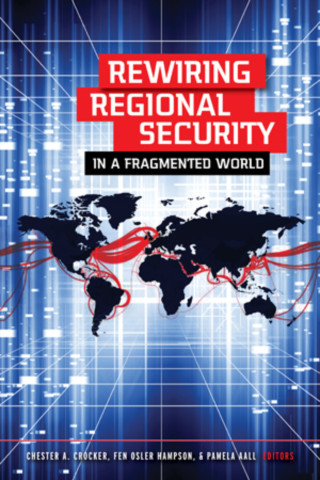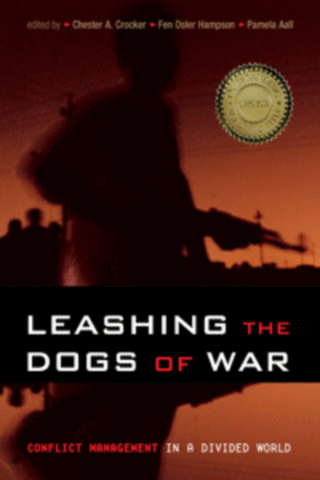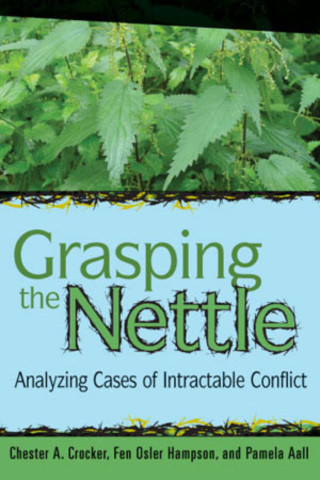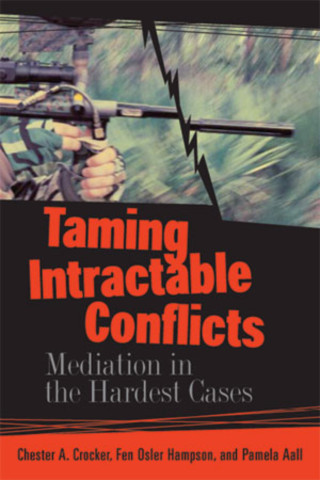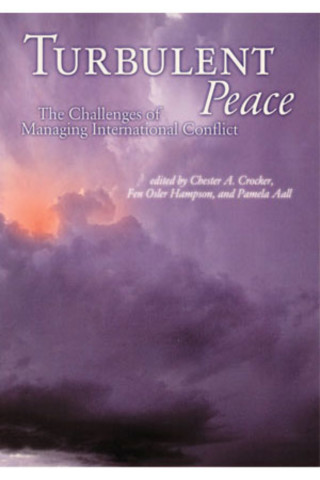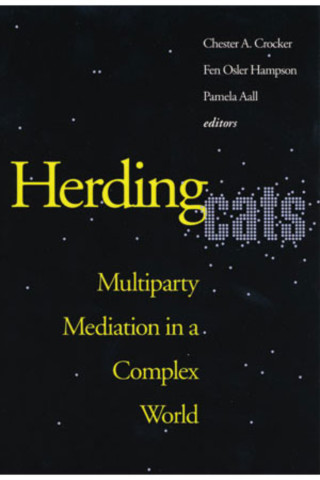Pamela Aall
Pamela R. Aall is a senior fellow at Centre for International Governance Innovation (CIGI) and the former vice president for United States Institute of Peace's domestic programs, Education and Training Center. Before joining the Institute in 1993, she was a consultant to the President's Committee on the Arts and the Humanities and to the Institute of International Education. She held a number of positions at the Rockefeller Foundation. She has also worked for the European Cultural Foundation (Amsterdam and Brussels), the International Council for Educational Development (New York), and the New York Botanical Garden. She holds a B.A. from Harvard University and an M.A. from Columbia University and attended the London School of Economics, conducting research on political and economic integration in Scandinavia and Europe.
Author's Books
In the midst of a global political shift where power moves from central institutions to smaller, more disbursed units, "Managing Conflict in a World Adrift" features lessons in contemporary theory and practice of conflict management. In this volume, forty of the world's leading analysts of international affairs provide innovative thinking about the relationship between political, social, and economic change and the outbreak and spread of conflict—and what this means in practical terms.
Rewiring Regional Security in a Fragmented World examines conflict management capacities and gaps regionally and globally, and assesses whether regions—through their regional organizations or through loose coalitions of states, regional bodies, and non-official actors—are able to address an array of new and emerging security threats.
The definitive volume on the sources of contemporary conflict and the array of possible responses to it.
Analyzes the defining characteristics and underlying dynamics of intractable conflicts.
Some conflicts seem to defy resolution. Marked by longevity, recurrent violence, and militant agendas, these intractable conflicts refuse to be settled either on the battlefield or at the negotiating table. The longer they fester, the stronger the international community's inclination to lose heart and to turn away. But, explain the authors of this provocative volume, effective mediation in intractable conflicts is possible—if the mediator knows what to do and when to do it.
Written from the mediator's point of view, Taming Intractable Conflicts lays out the steps involved in tackling the most stubborn of conflicts. It first puts mediation in a larger context, exploring why mediators choose or decline to become involved, what happens when they get involved for the wrong reasons, and the impact of the mediator's institutional and political environment. It then discusses best mediation tradecraft at different stages: at the beginning of the engagement, when the going gets very rough, during the settlement negotiations, and in the post-settlement implementation stage.
Forceful, concise, and highly readable, Taming Intractable Conflicts serves not only as a hands–on guide for would-be mediators but also as a powerful argument for students of conflict management that intractable conflicts are not beyond the reach of mediation.
Please see the new, replacement volume Leashing the Dogs of War.
Like its predecessor, Managing Global Chaos, this comprehensive volume explores the sources of contemporary conflict and the vast array of possible responses to it. The authors—50 of the most influential and innovative analysts of international affairs—present multiple perspectives on how best to prevent, manage, or resolve conflicts around the world.
In the five years since Managing Global Chaos was published, the geopolitical landscape has changed in significant ways and we have learned important lessons. Turbulent Peace underlines the volatility and vulnerability of states and peoples in a world that is both increasingly interconnected and ever more differentiated and decentralized in its political and social structures. Four new themes emerge from Turbulent Peace: the return of geopolitics; the recognition that different societies require different peacemaking strategies; the pull and tug between conflict management and post-conflict governance issues, such as democratization; and the understanding that creating a sustainable peace is as difficult as making peace in the first place.
Although this volume features many of the contributors to Managing Global Chaos (in most cases with updated and revised chapters), almost 70 percent of the contributors are new. The editors commissioned the new essays to address emergent themes in conflict analysis and management, to offer a wide range of viewpoints in contentious areas, and to respond to feedback from readers and the needs of educators. The result is a volume of unparalleled breadth and depth, an invaluable resource for teachers and students no less than for practitioners and policymakers.
An illustrious cast of practitioners here describe their personal experiences in working to bring peace in significant conflicts across four continents. As James Baker, Richard Holbrooke, Max van der Stoel, Alvaro de Soto, Aldo Ajello, and others make clear, the mediator must operate in an environment of daunting complexity, insecurity, and uncertainty. Whether sequestered in Norway or zigzagging across Africa, the mediator can take nothing for granted—not participants, agendas, or timetables—in the struggle to sustain and advance the peace process.
And just to make things more complicated, each conflict now typically attracts several independent mediators. Indeed, coordinating third party mediators is like herding cats—difficult if not impossible.
In each of the two dozen cases examined in this volume, mediation was a multiparty effort, involving a range of actors—individuals, states, international organizations, and NGOs—working simultaneously or sequentially. These vivid accounts attest to the crucial importance of coordinating and building upon the efforts of other players. They also illuminate the opportunities and problems presented by different entry points of mediation—from conflict prevention, through negotiation during active conflict, to post-settlement implementation and peacebuilding—and by different kinds of leverage, levels of engagement, and objectives.
This volume was developed by the same editors who were responsible for USIP Press's highly successful 1996 publication Managing Global Chaos and is intended as a follow-on to that book. In their feedback on the 1996 volume, readers requested additional resources, especially case studies that reflect real, hands-on experience in complex settings. Not only will these cases illustrate how multiparty mediation works or does not work, but they should also stimulate further work on the special requirements and best practices of the field, promote a dialogue among practitioners themselves as well as between academics and practitioners, and lead to unique insights, new understandings, and alternative approaches that can be applied to future mediations.
The editors have framed the volume with discussions that link the practitioner cases to the scholarly literature on mediation, thereby situating the case studies in terms of theory while also drawing lessons for both scholars and practitioners that can help guide future endeavors.

